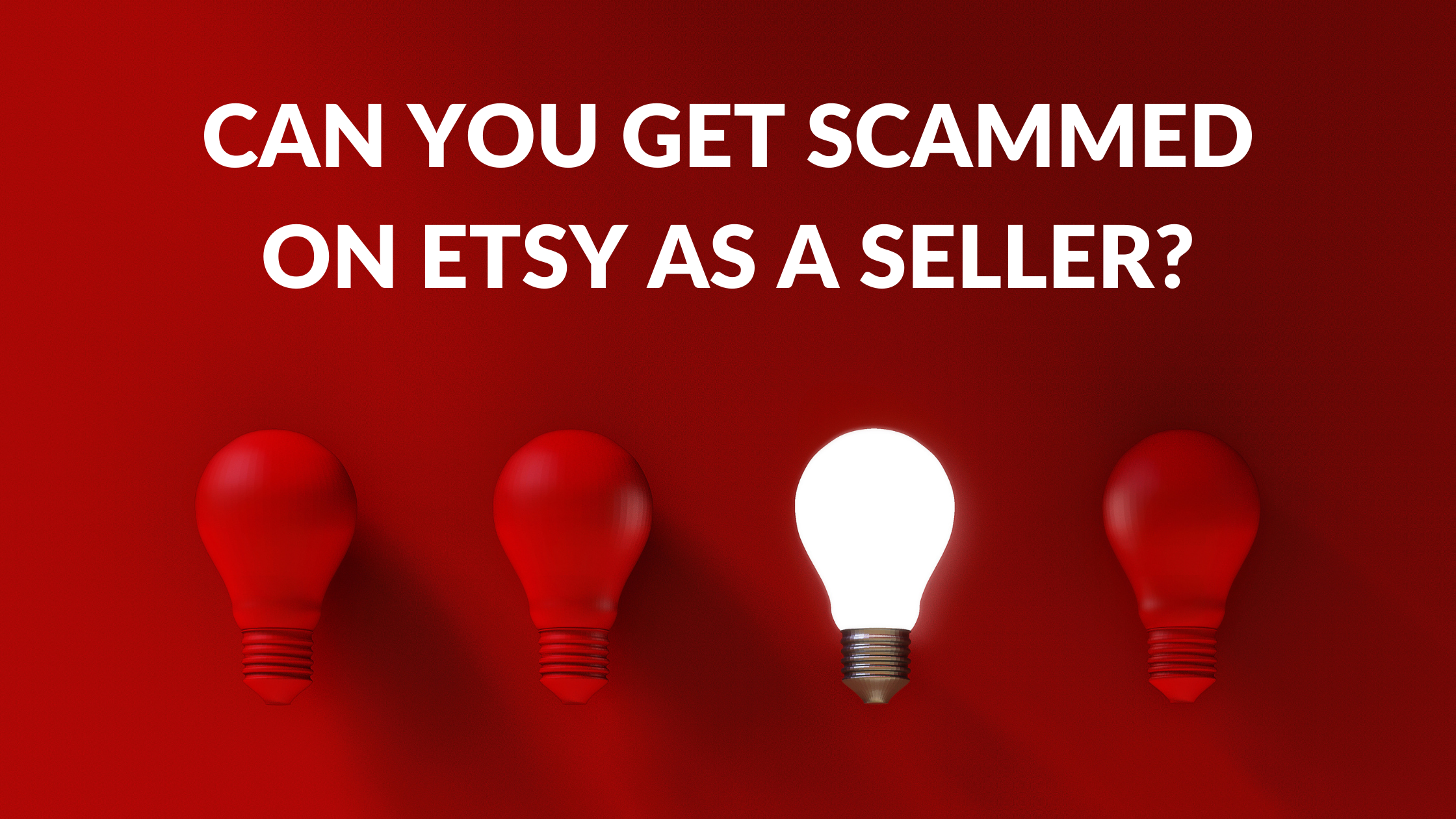Etsy is a popular online marketplace that enables sellers to showcase their handmade, vintage, and unique products to a global audience. While Etsy has strict policies in place to prevent scams, there are still instances where sellers fall victim to fraudulent activities. As a seller on Etsy, it is important to be aware of the potential scams and take necessary precautions to protect your business.
One of the most common scams that Etsy sellers face is the fake payment scam. In this scam, a buyer will place an order and send a fake payment confirmation email to the seller. The seller, thinking that the payment has been made, will ship the product only to realize later that the payment was never received. Another common scam is the chargeback scam where a buyer disputes a legitimate charge on their credit card, claiming that the product was never received or was not as described. As a result, the seller loses both the product and the payment.
Understanding Etsy Scams
Etsy is a popular e-commerce platform that allows individuals to sell handmade, vintage, and unique items to a global audience. However, like any online marketplace, there are potential scammers that sellers need to be aware of. Understanding Etsy scams is crucial for sellers to protect themselves and their businesses.
Types of Scams
There are various types of scams that Etsy sellers need to look out for. One common scam is the “overpayment scam.” In this scam, a buyer will send the seller a payment that is much higher than the item’s price and ask for a refund of the excess amount. The payment is often made with a fake check or stolen credit card, leaving the seller out of pocket when the payment is reversed.
Another type of scam is the “order cancellation scam.” In this scam, a buyer will place an order and then request that the seller cancels it. The buyer will then ask for a refund outside of Etsy’s platform, leaving the seller vulnerable to fraud.
How Scammers Target Etsy Sellers
Scammers often target Etsy sellers through phishing emails or direct messages. They may pose as Etsy support staff or use fake websites to trick sellers into giving up their account credentials. Scammers may also buy ads that promote fake Etsy phone numbers, encouraging sellers to call them for support.
To avoid falling victim to Etsy scams, sellers should keep all transactions on Etsy’s platform and be wary of requests to communicate or pay outside of the platform. It’s also essential to look out for red flags, such as buyers with little experience or low sales on Etsy.
In conclusion, understanding Etsy scams is crucial for sellers to protect themselves and their businesses. By being aware of the types of scams and how scammers target Etsy sellers, sellers can take steps to prevent fraud and keep their businesses safe.
Signs of an Etsy Scam
As an Etsy seller, it’s important to be aware of the signs of a potential scam. Here are some red flags to watch out for:
Fake Reviews
One common scam on Etsy is fake reviews. Scammers will often create fake buyer accounts and leave positive reviews on their own products to make them appear more legitimate. Be wary of products with a large number of glowing reviews that all seem to be written in a similar style or with similar language.
Unusual Buyer Behavior
Another sign of a potential scam is unusual buyer behavior. If a buyer is making strange requests or seems overly eager to purchase your product without asking any questions, it could be a red flag. Similarly, if a buyer is pressuring you to ship the product quickly or demanding that you make changes to the product, it’s important to proceed with caution.
Requests for Refunds or Discounts
Scammers may also try to trick you into giving them refunds or discounts. They may claim that the product arrived damaged or that it was not as described, even if this is not true. Be sure to carefully review any refund or return requests and ask for evidence of the issue before agreeing to a refund or discount.
In general, it’s important to trust your instincts when it comes to potential scams on Etsy. If something seems too good to be true or if a buyer’s behavior seems suspicious, it’s better to err on the side of caution and avoid the transaction altogether. By staying vigilant and aware of the signs of a potential scam, you can help protect yourself and your business on Etsy.
Preventing Etsy Scams
As an Etsy seller, it’s important to take steps to protect yourself from scams. Here are some tips to help you avoid becoming a victim of fraud:
Protecting Your Personal Information
One of the most important things you can do to prevent scams is to protect your personal information. Be cautious about sharing sensitive details like your full name, address, and phone number. Consider setting up a separate email address and phone number for your Etsy business, so that you can keep your personal information private.
Verifying Buyer Information
When you receive an order, take the time to verify the buyer’s information. Check that the shipping address matches the billing address and that the buyer’s account has been active for a reasonable amount of time. You can also look up the buyer’s feedback history to see if they have a history of making suspicious purchases.
Being Wary of Suspicious Buyers
Be on the lookout for red flags that could indicate a scam. For example, if a buyer wants to complete a transaction outside of Etsy, that’s a major warning sign. Scammers may also try to pressure you into shipping an item before payment has been received, or they may offer to pay more than the listed price and ask for a refund of the difference.
By taking these steps, you can reduce your risk of falling victim to an Etsy scam. Remember to always trust your instincts and be cautious when dealing with unknown buyers.
What to Do if You Get Scammed on Etsy
If you’re a seller on Etsy, you might be wondering what to do if you get scammed. Unfortunately, it’s not uncommon for sellers to fall victim to scams, but there are steps you can take to protect yourself and your business.
Reporting the Scam
The first thing you should do if you suspect you’ve been scammed is to report the incident to Etsy. You can do this by going to your Etsy account and clicking on the “Report a Problem” button. From there, you can select the appropriate category and provide details about the scam.
Contacting Etsy Support
If you need further assistance, you can contact Etsy support directly. You can do this by going to the Etsy Help Center and selecting the “Contact Us” option. From there, you can choose to contact Etsy via email, phone, or chat.
Taking Legal Action
If you’ve been scammed out of a significant amount of money, you may want to consider taking legal action. This could involve filing a complaint with your local law enforcement agency, or even hiring an attorney to pursue legal action against the scammer.
It’s important to remember that prevention is key when it comes to avoiding scams on Etsy. Be sure to thoroughly research any potential buyers or sellers before engaging in a transaction, and always use secure payment methods such as PayPal or Etsy Payments. By taking these steps, you can help protect yourself and your business from scams on Etsy.

